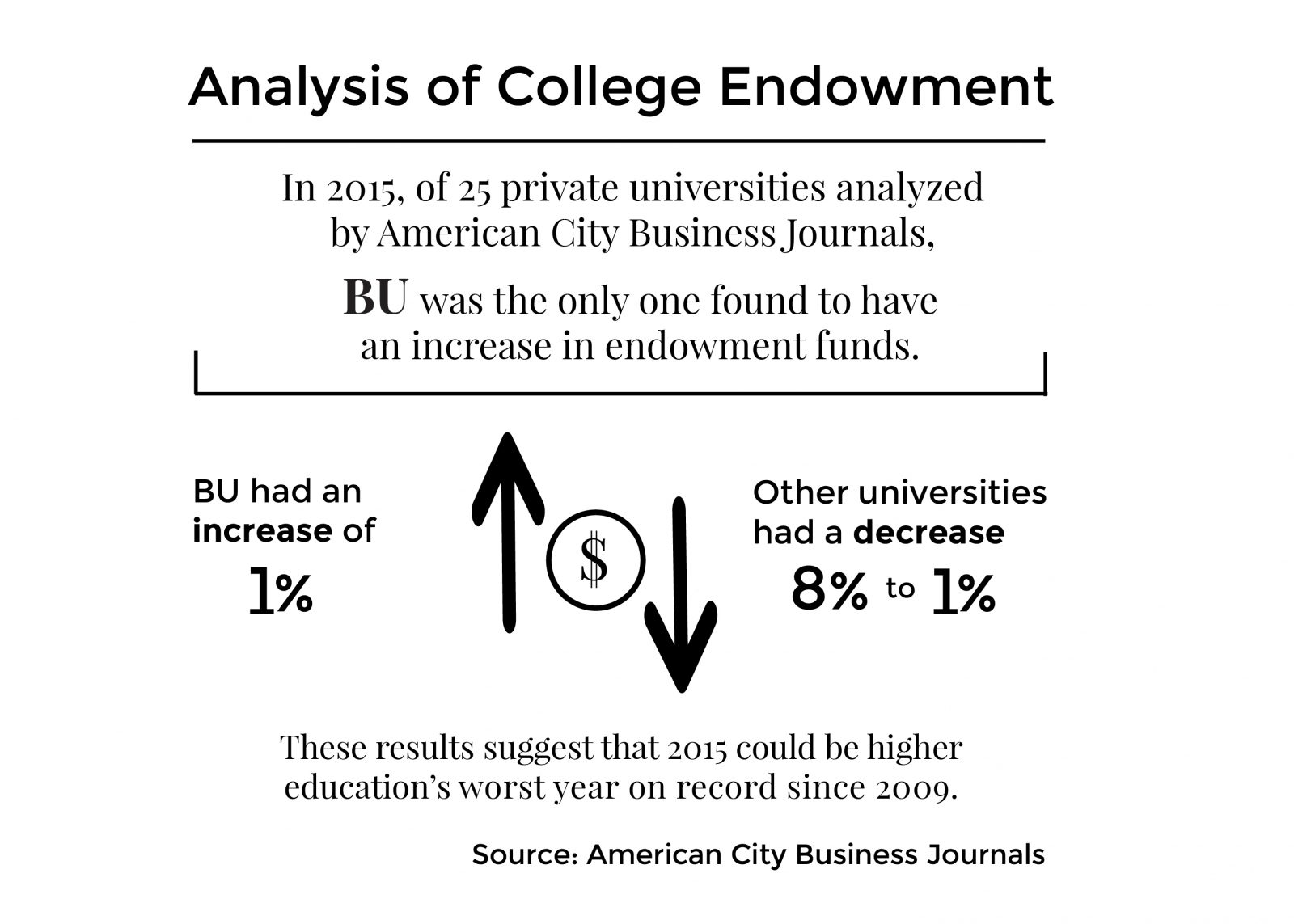
As the endowments of 24 other top private universities decline in value, Boston University manages to be the only one that maintains its worth, according to an article published in the Boston Business Journal on Sunday.
Craig Douglas, the director of editorial research and the author of the article, listed the endowment of 25 private, nonprofit universities, including Harvard University, Massachusetts Institute of Technology and Boston College. Based on data from the 2016 fiscal year, the 25 universities together lost $5.3 billion in value.
In the article, Douglas cites that this decline in value has heavily affected schools in the Northeast.
The schools are “very reliant on their endowments to fund operations,” Douglas said.
“So what happens is, as in the case in 2016, a lot of these schools saw their endowments shrink, which is never a good thing,” he said. “It just leaves them with less to draw on and a smaller pool of money to invest.”
Endowments can change in value over the course of a given period in three ways: Investment returns, donations and draws to fund operations, according to Douglas.
BU, however, is an outlier in these results. Douglas said the Journal reached out to BU for a comment, but didn’t receive a response.
“BU’s endowment increased in value in 2016, but it appears that it managed to do so by drawing less to fund its operations than it did the year before,” Douglas said. “In other words, BU had as crappy an investment year as everyone, it just decided not to take out as much money to support its operations.”
Douglas said there are several possible explanations for BU’s decision to take less money out of its endowment.
“For one it is less dependent on its endowment than say a Harvard or MIT, which both reported significant declines in value,” Douglas said. “The big guys have no choice but to draw the same big chunks of value from their endowments each year.”
BU spokesperson Colin Riley said in an email to The Daily Free Press that the “year-over-year values do not necessarily equate with investment performance.”
“The endowment total for a given year reflects more than investment return,” Riley wrote. “It includes additions, distributions and expenses as well. The endowment is well-managed, although it is modest for a school the size of Boston University.”
Despite rising tuition costs, many students said that they do not believe BU has lost its value because of the resources they receive on campus.
Tessa Kadar, a junior in the College of Arts and Sciences, said that she thinks BU has maintained its quality.
“I think BU has stayed the same in terms of quality, and I haven’t paid attention to the tuition going up or not, but I think the ratio, like tuition, has stayed worth it,” Kadar said. “I feel like you look at the number, and it still seems like you’re getting what you want to get from BU for the amount you’re paying.”
Elisabeth Mulford, a sophomore in the College of Communication, said she can see the resources on campus coming from BU’s endowment.
“I’m seeing new buildings going up, new services, dorms are getting redone,” Mulford said. “I feel like it’s a way of keeping the quality and keeping the standards for a school that’s going to charge this much.”
Ashley Barquin, a sophomore in COM, said she thinks student get what they are paying for at BU.
“BU is not just some community college or a state university that can just teach you anything that any other university can, but here, there’s a lot of networking to begin with,” Barquin said. “You’re also in Boston. You’re in the city, so you are paying for the location as well.”














